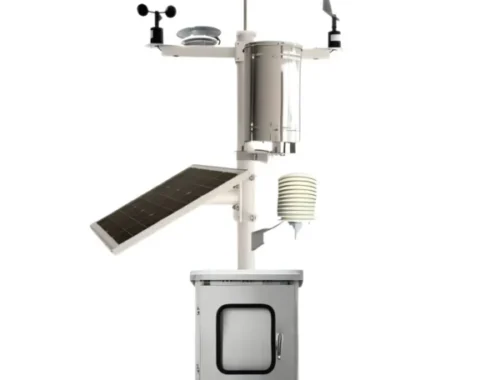Canada’s Nursing Shortage Could Get Worse Before It Gets Better
TORONTO ― A new report from job search site Indeed says there’s a growing labour shortage in nursing nationwide that’s showing “no signs of easing.”
Indeed says nursing employment levels have plateaued in recent years, despite projections that forecast the opposite. In 2017, Employment and Social Development Canada predicted nursing employment growth would be among the highest of all occupations in the coming decade.
That hasn’t happened, and Indeed’s data suggests the number of nurses in Canada has flatlined in recent years, despite a 77-per-cent increase in nursing job vacancies since 2015.
“I think it’s generally just a sign of tougher hiring conditions in the nursing field,” Indeed economist Brendon Bernard told HuffPost Canada. “Not only are nursing openings up, but more of them are remaining vacant for long periods.”
Watch: These are the hardest jobs to fill in Canada, according to Indeed. Story continues below.
The data suggests employers are struggling to recruit nurses in an environment where unemployment is often below one per cent, well below the national average of around five per cent, according to Indeed. An average nursing position received half as many clicks on Indeed as a typical job ad in 2016-2017, Bernard said.
“Indeed job posting and click data suggest job seeker interest in nursing roles is increasingly lagging demand,” Bernard wrote.
“Not every type of occupation has that type of demand,” he said. “It’s really a job-seeker’s market.”
Debbie Forward, president of the Registered Nurses’ Union Newfoundland and Labrador, says there are plenty of nursing jobs available in her province, but new grads are reluctant to hop into roles where they might be overworked and under-appreciated.
“We might have vacancies in this province but our new grads aren’t taking the permanent vacant positions,” Forward said. “They’re choosing to work on a casual basis because they tell me that they’re not willing to work in areas with high workload and they can’t get time off when they want it.”
READ MORE
-
Alberta Plans To Cut 500 Nursing Jobs Over 3 Years
-
Without Translators, Some Canadians Can’t Get Proper Health Care
-
Ontario Wants The Public's Take On Letting Nurses Prescribe Medication
Forward says young nurses, in particular, don’t want to be “held captive to their employer” and stuck in situations where they’re working too many long hours and feeling defeated at the end of a long and gruelling shift.
“Young people coming into our profession are saying ‘I’m not willing to work like that,’” Forward said. “Right now, our members are leaving work defeated, they’re leaving work beaten down, and it’s driving up sick leave, it’s affecting morale, it’s increasing burnout, and those things are affecting the number of nurses and the shortage in our profession,” she continued.
“We have to make the profession attractive again.”
Vicki McKenna, president of the Ontario Nurses’ Association, says nursing is a difficult job with lives at stake and that only gets more difficult as nurses are asked to do more with less.
“It isn’t a recruitment problem as much as it is a retention problem,” McKenna told HuffPost. “Enough attention is not being paid to nursing and that’s to the detriment of all of us.”
Nurses say there are some tangible ways to make the profession more attractive to young people, such as increasing their numbers in individual units.
“It starts with making sure that we have staffing levels that meet needs of patients so people feel confident,” Forward said. “The value starts in making sure we have them in the right numbers first and then we get into what is a fair compensation level for those individuals.”
Increasing wages is another potential solution for addressing the shortage.
“Wage growth for nurses has lagged the rest of the economy for a few years now,” Bernard said. “That’s one factor that’s contributing to the slowdown in job growth for nurses.”
Indeed says nurses earned 48 per cent more than the typical job in 2011. Nowadays, they’re earning 36 per cent higher wages than average. Statistics Canada says the average hourly wage rate for nurses was $36.59 in 2018, whereas it was $26.92 for all occupations in Canada.
“We have a wide variation in salary rates among the sector and that’s a problem because that might incentivize a nurse to work in a particular sector,” McKenna said.
That could explain why so many high-pressure nursing jobs aren’t getting many clicks on Indeed.
“It’s important for health-care employers to highlight the benefits of working in nursing,” Bernard told HuffPost.
While some nurses have access to pension plans and benefits, that can pale in comparison to what they can earn in the U.S., averaging $45.12 per hour, according to Indeed.
“Our nursing students are being lobbied very hard from employers south of the border,” McKenna said. “I’m worried about losing the ones that we have here.”
Perhaps the biggest elephant in the room when talking about nursing is the fact that Canada’s population is aging, and that means demand for nurses is only expected to grow. That’s why union leaders are calling for a national human resource strategy around nursing.
“We have to be innovative,” Forward said. “We need an evidence-based approach toward meeting patient needs. And I think that will go a long way in sending a message to nurses that they’re valued, that we’re going to make sure that there are enough of you so that workloads are reasonable so that you can provide the best possible care to patients.”
And nurses say that means federal and provincial governments will have to do more if they want to address the shortage.
“We’re the ones out there and we know what is needed and government needs to step up to the plate,” McKenna said.
‘We are depending on nursing’
This could be a problem that only gets worse before it gets better, as it isn’t just nurses that are hard to find these days.
Mary Barber, director of human resources at Jarlette Health Services in Midland, Ont., says more health-care professionals will be needed at facilities like hers in the coming years as baby boomers enter their twilight years.
“If the current trend continues to create an increasing gap between supply and demand, our industry will witness significant staffing stressors,” Barber warned.
That’s why Canada’s health-care system could be jeopardized by a lack of action on this issue, nurses say.
“Nursing is the foundation of health care … We are depending on nursing to be there,” Forward said. “The system is evolving now and nursing, just like other professions, has to evolve with it.”
Click Here: Cheap Golf Drivers
You May Also Like

Automatic Weather Station: A Comprehensive Overview
March 14, 2025
Automatic Weather Station Price Analysis and Market Trends
March 16, 2025